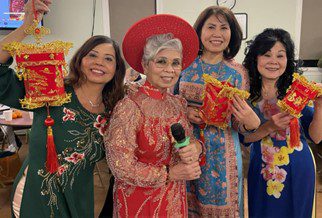
Funding will support access to groceries, meals, and social activities that are also culturally affirming.
The Seattle Human Services Department (HSD) is pleased to announce the results of the 2023 Culturally Nourishing Foods for Older Adults Request for Proposals (RFP), which closed April 12, 2023, releasing $530,430 in Seattle Sweetened Beverage Tax (SBT) funding and $100,000 in HSD General Fund dollars to fund priority investments in nutrition in its Aging and Disability Services (ADS) Division. This was the first time these funds were put out for bid in the community.
In response to this RFP, HSD received 18 applications requesting a total of $2,023,149—over three times the amount available. Nine of the applicants will receive funding. No provider was awarded their full requested amount.
Community-based organizations that will receive this Culturally Nourishing Foods funding include Asian Counseling and Referral Service, Eritrean Association in Greater Seattle, Filipino Community of Seattle, Interim CDA, Somali Community Services of Seattle, Somali Family Safety Task Force, Sound Generations, South Park Senior Center, and White Center Food Bank.
Strategies for this investment were based on community feedback. “From outreach and engagement activities, we learned that there was a need for culturally affirming groceries, meals, and ways for elders to connect with each other,” said ADS director Mary Mitchell. “We are pleased that this funding will support our Black, Indigenous, and other elders of color to have nourishing food and experiences that celebrate their heritage.”
The City of Seattle passed the SBT tax on sugary beverages to increase access to healthy food and to invest in communities most impacted by health inequities, including people of color, immigrants, refugees, and people with low incomes. These health inequities are exacerbated by the high cost of healthy food, access to quality food, and social isolation, key factors in the social determinants of health.
Food purchased from a grocery store or supermarket cost 13% more in September 2022 than September 2021 and 8.5% more at a restaurant for the same time period, according to the U.S. Department of Agriculture Economic Research Service. Food prices are predicted to increase 3%–4% in 2023, further reducing the ability of people with lower incomes to purchase healthy food.
“Access to nutritious food is one element that affects health and quality of life. Another key element of the social determinants of health is social and community context—the importance of relationships, interactions, and social support.”
Mary Mitchell, ADS Director
According to the Centers for Disease Control, among older adults, social isolation and loneliness are associated with dementia, premature death from all causes, and higher rates of depression, anxiety, and suicide. Those who were born in another country are more likely to experience social isolation and loneliness than non-immigrants. While health outcomes are impacted by feeling lonely, social interactions may improve health and well-being in older adults.
What some awardees are saying:
Makda Seyoum, Operations Coordinator for the Eritrean Association in Greater Seattle explained that they will deliver nutritious, culturally fitting meals to isolated immigrant and refugee seniors in the Seattle area three times a week and culturally appropriate grocery pantry items once a week. “We consider ourselves extremely fortunate to have secured these grants, as they will have a direct and meaningful impact on our senior nutrition program and community, particularly benefiting our vulnerable seniors,” said Makda.
“InterIm CDA is thrilled to receive this funding from City of Seattle Human Services Department for low-income, immigrant and refugee seniors in the CID [Chinatown-international District]. We will use it to create opportunities for them to socially engage and gather together at events that celebrate API culture and food. The CID’s senior population faces unique challenges regarding social isolation including language barriers, socioeconomic barriers and public safety and environmental concerns. These ongoing issues can keep seniors indoors and alone,” said Pradeepta Upadhyay, Executive Director of InterIm CDA.
Upadhyay continued: “To combat and prevent social isolation which we know leads to both mental and physical health disparities, we’ll hold weekly cooking classes, special events and gatherings around healthy eating in the Danny Woo Garden, we will plan for trips to take seniors to farmers markets and urban farms, and we’ll bring youth and seniors together to encourage intergenerational relationship building around cultural food prep and sharing.”
“South Park Senior Citizens is delighted to partner with the City of Seattle,” said Katherine Jordan, South Park Senior Citizens (SPSC) Executive Director. “We will provide 4,500+ nutritious and cultural meals and host six cultural celebrations that are an endeared part of our Center’s identity as we honor our Hispanic, Khmer, and Vietnamese cultures.”
The 2024 Culturally Nourishing Foods for Older Adults contract is managed by Aging and Disability Services, a division of the Seattle Human Services Department that is designated by the State of Washington as the Area Agency on Aging for Seattle and King County. Older people, adults with disabilities, caregivers, and family members can access information and local services by contacting Community Living Connections at www.CommunityLivingConnections.org.
